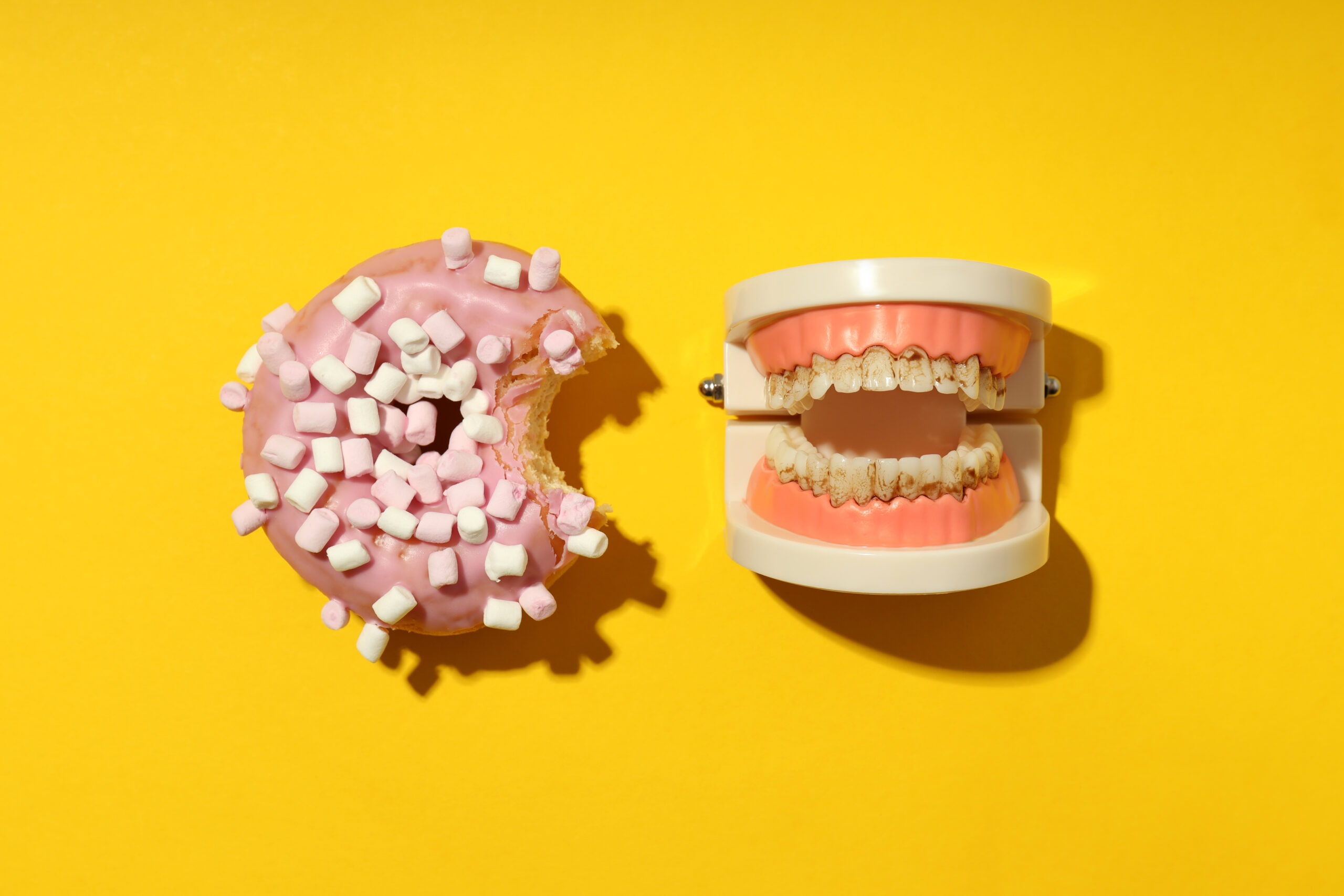Tooth decay is one of the most common chronic health issues worldwide, affecting individuals of…

Essential Ways to Protect Your Tooth Enamel Every Day
When it comes to oral health, one of the most important aspects to focus on is protecting your tooth enamel. Enamel is the outer layer of your teeth that plays a crucial role in maintaining the strength and integrity of your smile. Unfortunately, many factors can lead to enamel erosion, putting your oral health at risk. In this blog post, we will discuss the best ways to protect your tooth enamel every day, from proper brushing techniques to the benefits of using fluoride toothpaste and mouthwash, and of course, regular visits to the Center for Restorative, Cosmetic and Implant Dentistry (CRCID). By following these essential tips, you can ensure that your enamel stays strong and healthy for years to come.
Understanding Tooth Enamel and Its Crucial Role in Oral Health
Tooth enamel, the hardest substance in the human body, serves as the first line of defense for your teeth. This translucent, outer layer is responsible for protecting the sensitive dentin and inner parts of your teeth from physical and chemical damage.
Despite its strength, enamel is susceptible to erosion from a variety of sources, including acidic foods and beverages, aggressive brushing, and the build-up of bacteria that leads to decay. The erosion of this vital substance can lead to sensitivity, discoloration, and an increased risk of cavities, underscoring the importance of preserving its integrity.
Unlike other parts of the body, once enamel is lost, it cannot regenerate, making prevention and maintenance through daily oral care practices critical for sustaining oral health. This irreplaceable layer not only safeguards your teeth but also plays a pivotal role in your overall well-being, highlighting the need for protective measures against factors that threaten its durability.
Proper Brushing and Flossing Techniques to Maintain Strong Enamel
Adopting proper brushing and flossing habits is pivotal for enamel preservation. To effectively protect your enamel, use a soft-bristled toothbrush and engage in gentle, circular motions rather than harsh, back-and-forth strokes, which can contribute to enamel wear. It’s recommended to brush for two minutes, twice a day, ensuring you cover all surfaces of your teeth.
Equally important is the choice of fluoride toothpaste, recognized for its enamel-strengthening properties. Flossing, on the other hand, complements brushing by removing plaque and food particles lodged between teeth and along the gumline, areas a toothbrush might miss. For optimal results, floss at least once a day, using a slow and careful motion to avoid damaging the gums or enamel.
Together, these techniques form a comprehensive oral care routine that not only cleans but also fortifies your enamel against everyday threats.
The Benefits of Using Fluoride Toothpaste and Mouthwash
Fluoride stands as a cornerstone in the battle against tooth enamel erosion and decay. This naturally occurring mineral is renowned for its capacity to not only fortify tooth enamel but also to aid in the process of remineralization. When enamel begins to demineralize due to the effects of acids from food and bacteria, fluoride intervenes by replenishing lost minerals, enhancing the enamel’s resistance to future attacks.
Incorporating fluoride toothpaste and mouthwash into your daily oral hygiene routine can create a protective shield for your teeth. These products work synergistically to combat bacteria, reduce plaque, and provide a continuous barrier against the elements that threaten enamel integrity. The dental team at the Center for Restorative, Cosmetic and Implant Dentistry recommend the inclusion of fluoride-rich dental products in maintaining the durability and health of tooth enamel over time.
Hydration’s Role in Oral Health: Drink Plenty of Water
Hydration plays a pivotal role in safeguarding oral health, with water consumption being a key component in the prevention of enamel erosion. Water acts as a natural cleanser, helping to dilute acids in the mouth from foods and beverages that can damage tooth enamel over time. Each sip helps to wash away residual particles and sugars that bacteria feed on, reducing the risk of plaque buildup and tooth decay.
Additionally, adequate water intake is crucial for promoting saliva production. Saliva not only neutralizes harmful acids but also carries essential minerals such as calcium and phosphate, which aid in the remineralization process of the enamel. By making water your beverage of choice and ensuring you drink consistently throughout the day, you can actively contribute to the health and longevity of your tooth enamel, while also supporting overall hydration levels for systemic health benefits.
The Importance of Calcium Intake for Strong Tooth Enamel
Calcium plays a vital role in the composition and fortification of tooth enamel, acting as a critical building block for maintaining its strength and resilience against daily wear and tear. This essential mineral helps to harden the enamel and provides it with the necessary resistance to withstand the acidic attacks from food and drinks that lead to erosion.
To support enamel health, incorporating a variety of calcium-rich sources in your diet is key. Dairy products, such as milk, cheese, and yogurt, are well-known for their high calcium content. However, for those who prefer or require non-dairy alternatives, options such as fortified plant-based milks, leafy green vegetables, and nuts like almonds offer valuable amounts of this crucial nutrient.
Beyond just dietary sources, calcium supplements may also serve as a beneficial adjunct to meet daily requirements, especially in individuals who have difficulty consuming enough calcium through food alone. It’s important to consult with a healthcare professional before starting any supplement regimen to ensure it aligns with your overall health and nutritional needs.
By prioritizing calcium intake, Center for Restorative, Cosmetic and Implant Dentistry patients can take a proactive step towards preserving the integrity of their tooth enamel, laying a strong foundation for oral health that supports a vibrant and enduring smile.
Foods to Avoid: Limiting Acidic and Sugary Foods
Navigating your diet is crucial for preserving the integrity of your tooth enamel. Foods and drinks high in acid and sugar pose a significant threat, as they can erode enamel over time. Citrus fruits, while rich in vitamins, contain acids that can weaken enamel, making it more vulnerable to damage. Similarly, sugary treats and beverages, including sodas and candies, can create an environment that encourages bacterial growth and acid production, further contributing to enamel deterioration.
To mitigate these effects, it’s advisable to minimize exposure to these harmful items. When you do consume these foods, it’s beneficial to follow up with water to help dilute and wash away the acids and sugars from the surface of your teeth. This practice assists in reducing the potential damage to enamel.
Additionally, incorporating foods that stimulate saliva production, such as fibrous fruits and vegetables, can help neutralize harmful acids and protect your enamel from the erosive effects of acidic and sugary foods and beverages.
Dental Procedures for Enamel Restoration: Veneers, Sealants, and Bonding
In the event that tooth enamel has been compromised, the Center for Restorative, Cosmetic and Implant Dentistry offers several solutions to restore and protect the teeth.
Veneers
Veneers are thin, custom-made shells crafted from porcelain or composite material, designed to cover the front surface of teeth. This procedure not only enhances the aesthetic appeal of your smile but also provides a durable layer to shield the underlying tooth from further damage.
Dental sealants offer another protective measure, particularly effective for the molars. This clear, protective coating is applied to the chewing surfaces of the back teeth, where it acts as a barrier against decay-causing bacteria.
Dental bonding
For minor chips, cracks, or discoloration, dental bonding presents a versatile solution. A tooth-colored resin material is applied to the affected area, then hardened with a special light. This not only improves the tooth’s appearance but also helps to restore its original strength.
Each of these procedures can play a significant role in not only restoring the function and look of teeth affected by enamel erosion but also in providing an additional layer of protection against future damage. Consulting with your dental professional at the Center for Restorative, Cosmetic and Implant Dentistry can help determine the most suitable option based on the specific condition of your enamel and overall dental health goals.
The Importance of Regular Dental Checkups and Cleanings
Ensuring the health of your tooth enamel extends beyond daily brushing and flossing. Regular dental checkups and professional cleanings at the Center for Restorative, Cosmetic and Implant Dentistry play a pivotal role in maintaining enamel integrity. These visits allow for early detection and management of conditions that could otherwise compromise your enamel, such as cavities or early signs of erosion.
During a professional cleaning, Center for Restorative, Cosmetic and Implant Dentistry’s dental hygienists use specialized tools to meticulously remove plaque and tartar that regular home care might miss, especially in areas that are difficult to reach. This process is crucial in preventing the buildup of bacteria that can lead to enamel erosion and decay. Additionally, your CRCID dentist can apply fluoride treatments during these visits to further strengthen your enamel against acid attacks and wear.
Beyond safeguarding your enamel, these appointments provide an opportunity for personalized advice on improving your oral hygiene routine, ensuring that you are equipped with the knowledge and tools necessary to protect your enamel effectively. Embracing regular dental checkups and cleanings is essential for long-term enamel health, ensuring that your teeth remain strong, resilient, and vibrant.
Our caring team at the Center for Restorative, Cosmetic, and Implant Dentistry is here to serve patients in the Chesapeake and Virginia Beach, VA areas. Contact us today to make an appointment. Your dental health and bright smile are our priorities!


